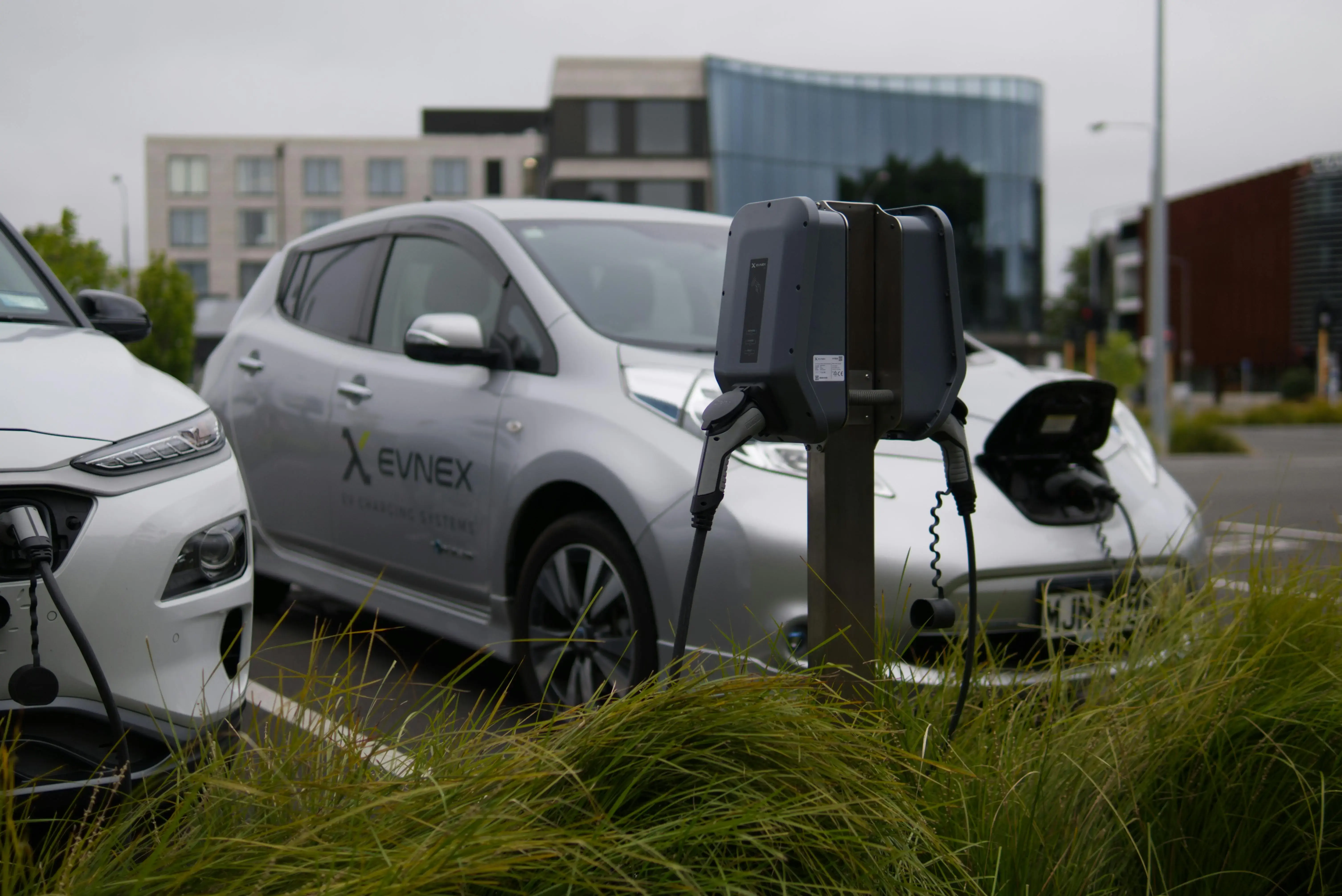Norway EV VAT & ISV Tax Guide: Import Costs & Exemptions 2025
Norway's exceptional electric vehicle incentives have made it the world's leading EV market, but understanding the specific tax implications for imported electric vehicles is crucial for accurate cost planning. The Norwegian tax system creates substantial advantages for EV imports through strategic VAT exemptions and ISV (registration tax) reductions that can save thousands of dollars compared to conventional vehicle imports.
Norway's VAT Structure for Electric Vehicle Imports
Partial VAT Exemption with Threshold Limit
Critical Tax Information: Norway's VAT exemption for electric vehicles applies only up to a vehicle value of NOK 500,000 (approximately $43,000-45,000). This partial exemption structure significantly impacts total import costs, especially for higher-value EVs.
How VAT Calculation Works:
-
Below NOK 500,000: Complete VAT exemption (0% tax)
-
Above NOK 500,000: 25% VAT applies only to the amount exceeding the threshold
-
Total vehicle value includes: Purchase price + shipping costs + applicable duties
VAT Calculation Examples:
Example 1: Tesla Model 3 ($42,000 purchase price)
-
Vehicle value: $42,000 (approximately NOK 460,000)
-
VAT rate: 0% (below threshold)
-
Total VAT: $0
Example 2: Tesla Model S ($85,000 purchase price)
-
Vehicle value: $85,000 (approximately NOK 930,000)
-
Amount above threshold: NOK 430,000
-
VAT on excess: NOK 107,500 (25% of NOK 430,000)
-
Total VAT: Approximately $9,800
VAT Assessment Base and Components
Complete Valuation Formula:
Norwegian customs calculates VAT based on the total customs value, which includes:
-
Vehicle purchase price as declared on commercial invoice
-
International shipping costs from US port to Norwegian port
-
Import duties (typically $0 for pure EVs)
-
Handling and port charges at Norwegian destination
Documentation Requirements:
-
Commercial invoice showing actual purchase price
-
Bill of lading documenting shipping costs
-
Import declaration with accurate value assessment
-
Currency conversion at official exchange rates
ISV (Engangsavgift) Registration Tax for Electric Vehicles
Understanding Norway's Registration Tax System
ISV (Engangsavgift) is Norway's one-time registration tax calculated primarily on vehicle weight and CO2 emissions. Electric vehicles benefit from dramatic reductions or complete exemptions from this tax.
ISV Calculation Factors:
-
Vehicle weight: Primary factor for EVs (battery weight included)
-
CO2 emissions: 0 g/km for pure EVs results in minimal tax
-
NOx emissions: Not applicable to electric vehicles
-
Engine displacement: Not relevant for EVs
EV-Specific ISV Benefits:
-
Pure electric vehicles: Substantial ISV reduction or exemption
-
Zero emissions status: Eliminates emission-based tax components
-
Weight consideration: Some ISV may apply based on total vehicle weight
-
Battery weight impact: Heavier EV batteries can increase weight-based ISV
ISV Calculation Examples by Vehicle Type
Compact Electric Vehicle (e.g., Nissan Leaf):
-
Vehicle weight: ~1,600 kg
-
CO2 emissions: 0 g/km
-
Estimated ISV: $0-$500 (minimal weight-based charge)
Mid-Size Electric SUV (e.g., Tesla Model Y):
-
Vehicle weight: ~2,000 kg
-
CO2 emissions: 0 g/km
-
Estimated ISV: $500-$1,500 (moderate weight-based charge)
Large Electric Vehicle (e.g., BMW iX):
-
Vehicle weight: ~2,500+ kg
-
CO2 emissions: 0 g/km
-
Estimated ISV: $1,000-$3,000 (higher weight-based charge)
Complete Tax Comparison: EV vs. Conventional Vehicles
Side-by-Side Tax Analysis
| Tax Component | Electric Vehicle | Conventional Vehicle |
|---|---|---|
| Import Duty | 0% | 8.9% standard rate |
| VAT | 0% up to NOK 500,000; 25% on excess | 25% on full value |
| ISV Registration Tax | Minimal (weight-based only) | $5,000-$25,000+ |
| Total Tax Burden | Low to moderate | Very high |
Conventional Vehicle Tax Example ($50,000 vehicle):
-
Import duty: $4,450 (8.9%)
-
VAT: $13,613 (25% of $54,450 total)
-
ISV: $8,000-$15,000 (emissions/weight-based)
-
Total taxes: $26,063-$33,063
Electric Vehicle Tax Example (same $50,000 value):
-
Import duty: $0
-
VAT: $2,275 (25% of $9,100 excess above NOK 500,000)
-
ISV: $500-$1,500 (weight-based only)
-
Total taxes: $2,775-$3,775
Tax Savings: $23,288-$29,288 by choosing electric
VAT Exemption Timeline and Future Changes
Current Policy Through 2026
Confirmed Extensions:
-
VAT exemption extended through December 31, 2026
-
Threshold remains at NOK 500,000 with no announced increases
-
Political consensus supporting continued EV incentives
-
Gradual transition as market matures toward 100% EV sales
Potential Future Changes:
-
Threshold adjustments possible after 2026 based on market conditions
-
Complete phase-out of exemptions as EV adoption reaches saturation
-
Modified structure potentially targeting luxury EVs differently
-
International coordination with EU tax policies
Planning for Regulatory Changes
Import Timing Considerations:
-
Current benefits guaranteed through 2026 for qualifying imports
-
Future policy uncertainty suggests earlier import timing may be advantageous
-
Market monitoring recommended for policy updates and changes
-
Professional consultation advisable for high-value vehicle imports
Strategic Tax Planning for EV Imports
Optimizing Total Import Costs
Value Threshold Management:
When possible, consider how purchase price and shipping costs affect the NOK 500,000 threshold:
Cost Optimization Strategies:
-
Purchase price negotiation to stay below threshold when feasible
-
Shipping method selection balancing cost with total valuation impact
-
Timing considerations accounting for currency exchange fluctuations
-
Professional valuation ensuring accurate customs assessment
Currency Exchange Impact:
-
USD/NOK fluctuations can affect threshold calculations
-
Fixed NOK threshold means dollar values vary with exchange rates
-
Timing strategy may benefit from favorable exchange rates
-
Professional monitoring of currency trends for optimal import timing
Documentation and Compliance
Accurate Tax Assessment:
-
Complete documentation preventing disputes and reassessment
-
Professional valuation for modified or unique vehicles
-
Customs brokerage ensuring proper tax calculations
-
Compliance verification avoiding penalties and delays
Common Tax Pitfalls:
-
Undervaluation risks leading to customs penalties and reassessment
-
Documentation gaps causing delays and additional scrutiny
-
Currency errors resulting in incorrect tax calculations
-
Professional oversight preventing costly mistakes
Regional Tax Variations and Considerations
Municipal and Regional Fees
Additional Local Charges:
While VAT and ISV are national taxes, some regional variations exist:
-
Registration fees varying by Norwegian county
-
Number plate costs standardized but with regional processing
-
Inspection fees for technical approval and compliance
-
Documentation charges for translation and certification
Port-Specific Considerations:
-
Oslo port charges typically higher but with faster processing
-
Fredrikstad alternatives potentially lower port fees
-
Regional delivery costs from port to final destination
-
Professional services availability and pricing by location
Tax Benefits Beyond Import
Ongoing EV Incentives in Norway
Operational Tax Benefits:
Electric vehicle tax advantages continue after successful import:
-
Annual road tax: Minimal fees for electric vehicles
-
Toll road exemptions: Free or reduced passage on most Norwegian highways
-
Parking benefits: Free or discounted parking in major Norwegian cities
-
Ferry discounts: Reduced rates on Norwegian ferry services
-
Bus lane access: Permitted use in most urban areas
Long-term Value Considerations:
-
Resale value protection through continued incentives
-
Operational cost savings from tax benefits and lower energy costs
-
Infrastructure access to extensive Norwegian charging network
-
Future-proofing against potential combustion vehicle restrictions
Professional Tax Advisory Services
Expert Guidance for Complex Situations
When Professional Help Is Essential:
-
High-value vehicles approaching or exceeding VAT threshold
-
Modified or unique EVs requiring individual assessment
-
Commercial imports with different tax implications
-
Multiple vehicle imports requiring strategic planning
-
Currency hedging for large import operations
West Coast Shipping's Tax Expertise
Our specialized Norwegian import services include comprehensive tax advisory:
Tax Planning Services:
-
Pre-import consultation on tax implications and optimization strategies
-
Value assessment ensuring accurate customs declarations
-
Regulatory compliance with current Norwegian tax requirements
-
Currency planning accounting for exchange rate fluctuations
-
Documentation preparation preventing tax assessment disputes
Ongoing Regulatory Monitoring:
-
Policy updates tracking changes to Norwegian EV tax incentives
-
Threshold monitoring watching for adjustments to VAT exemption limits
-
Market intelligence understanding regulatory trends and future changes
-
Strategic planning optimizing import timing for best tax treatment
Getting Professional Import Support
Comprehensive EV Import Services
For complete information about importing electric vehicles to Norway, including detailed tax calculations, shipping options, and regulatory compliance, explore our comprehensive resource: How to Import an Electric Vehicle to Norway from the U.S. in 2025.
Expert Norwegian Import Guidance
Understanding Norway's complex tax structure for electric vehicle imports requires current knowledge of regulations, accurate cost calculations, and strategic planning to optimize your total import expense. Our experienced team provides specialized support throughout the entire process, ensuring compliance while maximizing available tax benefits.
Whether you're importing a compact EV that stays below the VAT threshold or a luxury electric vehicle that exceeds it, professional guidance ensures accurate tax calculations and successful compliance with Norwegian import requirements.
Ready to understand the exact tax implications for your specific electric vehicle import?
Contact our specialists through our Norwegian services page for personalized consultation and comprehensive tax planning tailored to your EV import requirements.
You May Also Like
These Related Stories

Taxes & Duties When Importing An Electric Vehicle To Norway In 2025

Step-By-Step EV Import Process Norway: Timing & Adapter Guide

-093789-edited.png?width=220&height=79&name=wcs_final_logo_(1)-093789-edited.png)
